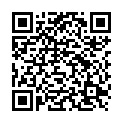|
|
|
| Module code: WIMAScWPF-Ing13 |
|
|
1V+1U (2 hours per week) |
|
3 |
| Semester: 1 |
| Mandatory course: no |
Language of instruction:
German |
Assessment:
Written exam
[updated 18.12.2018]
|
WIMAScWPF-Ing13 (P450-0123) Industrial Engineering, Master, ASPO 01.10.2014
, semester 1, optional course, general subject
|
30 class hours (= 22.5 clock hours) over a 15-week period.
The total student study time is 90 hours (equivalent to 3 ECTS credits).
There are therefore 67.5 hours available for class preparation and follow-up work and exam preparation.
|
Recommended prerequisites (modules):
None.
|
Recommended as prerequisite for:
WIMAScWPF-W18
[updated 05.08.2022]
|
Module coordinator:
Prof. Dr.-Ing. Christian Köhler |
Lecturer:
Prof. Dr.-Ing. Christian Köhler
[updated 06.01.2020]
|
Learning outcomes:
After successfully completing this module students will:
- have sound knowledge of assembly-friendly product design
- be able to design, plan and evaluate assembly systems of varying complexity.
- possess sound knowledge about handling technology
- be familiar with current topics from the field of industrial assembly technology and assembly organization (e.g. Industry 4.0, collaborative robotics)
[updated 18.12.2018]
|
Module content:
1. Introduction
2. Assembly-friendly product design
3. Organizing, planning and evaluating assembly systems
4. Planning and designing manual assembly workstations
5. Planning and designing hybrid assembly systems
6. Planning and designing automatic assembly systems
7. Planning and designing flexible assembly systems with the use of robots
8. Material supply and handling technology
9. Current topics (Industry 4.0 and collaborative robotics)
[updated 18.12.2018]
|
Teaching methods/Media:
Lecture with integrated exercises
[updated 18.12.2018]
|
Recommended or required reading:
Lotter, B./Wiendahl, H.-P. (Hrsg.): Montage in der industriellen Produktion. 2. Auflage, SpringerVieweg VDI-Buch, 2013
Wiendahl, H.-P.: Betriebsorganisation für Ingenieure. 8. Auflage, Hanser, 2014
Westkämper, E./Bullinger, H.-J./Horváth, P./Zahn, E.: Montageplanung _ effizient und marktgerecht. Springer VDI-Buch, 2001
Eversheim, W.: Organisation in der Produktionstechnik _ Band 4: Fertigung und Montage. 2. Auflage, VDI-Verlag, 1989
Hesse, S.: Grundlagen der Handhabungstechnik. 4. Auflage, Hanser, 2016
Feldhusen, J./Grote: K.-H.: Pahl/Beiz _ Konstruktionslehre. 7. & 8. Auflage, Springer Vieweg
[updated 18.12.2018]
|


